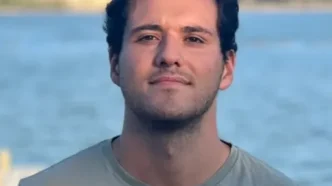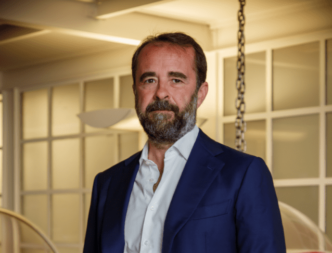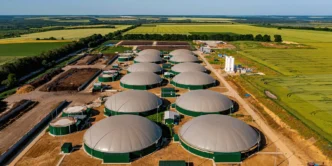Biodiversity across Europe is under severe threat, with 19% of animal species facing extinction in 2025. France is among the worst affected, with over one-third of its wildlife species at risk. Each year, the country loses 25,000 hectares of land to development—equivalent to four football fields every hour—due to urbanisation, intensive farming, and infrastructure expansion. Paris-based startup Versant is addressing this urgent issue by enabling infrastructure developers to build sustainably while protecting nature.
The nature tech company recently secured €500K in its first funding round. The investment includes contributions from early-stage VC firm Antler, Climate Leaders Fast Track, and prominent business angels. In addition, Versant has received grants from the European Space Agency Business Incubation Centre and BPI France.
Martin de Stoppani, co-founder of Versant, told TFN: “We’ve raised €500K, including €350K in equity and €150K in grants. Our valuation was determined through a BSA AIR mechanism.” The funding will help create a scalable solution for renewable energy developers to meet environmental obligations efficiently across all project stages.
Technology for Land Restoration and Renewable Development
Versant was co-founded by Martin de Stoppani (CEO) and Luc Bettaieb (CTO), who met at Antler’s Paris founder residency. De Stoppani brings operational experience from startup Pulp and nature tech firm BGV, while Bettaieb offers technical leadership from stints at Fetch Robotics, Postmates, and Autodesk.
De Stoppani said Versant was founded to address an increasing demand for ecological data amid a shortage of ecologists and naturalists. This data gap causes delays for renewable energy developers and weakens environmental outcomes. Versant seeks to address this through tech-powered ecological intelligence.
Since its 2024 launch, the startup has partnered with major renewable energy players in France, including EDF Renouvelables, and identified over 50 hectares of land suitable for ecological restoration.
“Infrastructure projects in France must include biodiversity impact assessments,” de Stoppani explained. “When avoidance or reduction measures fall short, developers are required to carry out ecological compensation.” Compensation must follow strict guidelines: equivalence in species restoration, geographical proximity, and additionality by improving degraded land.
Traditional methods of finding compensation sites are manual and slow. Versant’s deeptech solution aggregates ecological and remote sensing data to quickly identify land with high restoration potential. A standout feature is species distribution modelling, developed by Versant’s lead ecologist, Greta, who holds a PhD in the field.
“Our first product automates land identification for ecological compensation, with species data as a core input. What sets us apart is our focus on renewable energy projects and compensatory biodiversity measures,” said de Stoppani.
Versant Regulatory Momentum and Expansion Beyond France
Looking ahead, Versant plans to deepen its role in the renewable energy space while branching into infrastructure, industrial, and urban development—sectors increasingly affected by biodiversity regulations. With support from EU directives, the company sees opportunities to scale beyond France and grow its presence across Europe.
“Our vision is to build the go-to platform for developers to manage ecological impacts from the start,” de Stoppani said. “Biodiversity must be built into early project decisions, not treated as an afterthought.”
Christoph Klink, Partner at Antler, noted: “Versant is solving a significant ecological and regulatory challenge. The founding team’s technical expertise and genuine passion for biodiversity position them well to reshape how ecological impact is managed. We’re proud to support their journey.”













